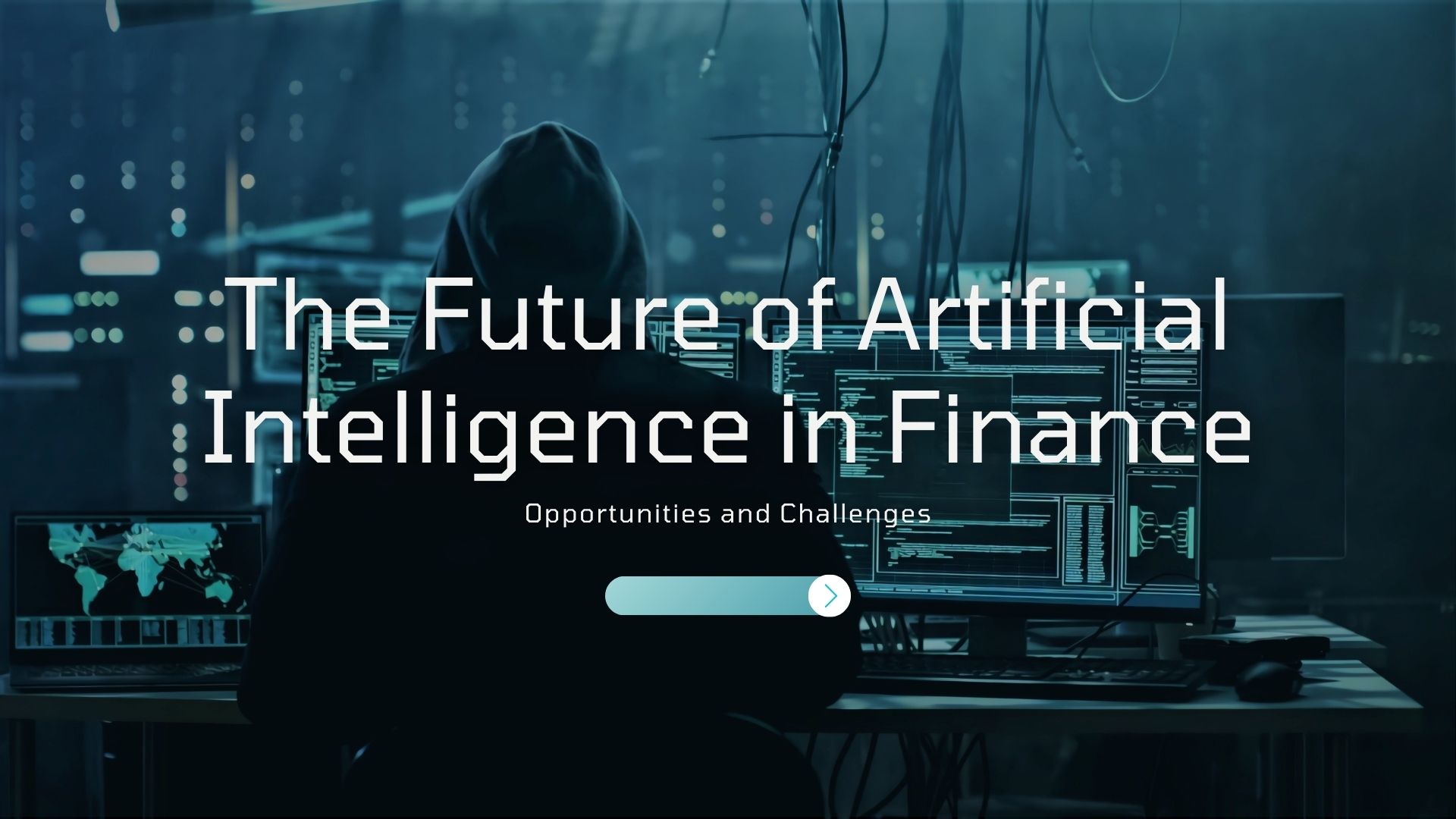The Future of Artificial Intelligence in Finance: Opportunities and Challenges

Opportunities AI Brings to Finance
1. Enhanced Data Analysis and Predictive Analytics
AI’s ability to process and analyze vast amounts of data far exceeds human capabilities. In finance, this means more accurate predictions about market trends, economic shifts, and investment opportunities. AI algorithms can analyze historical data, spot patterns, and forecast potential future movements with high accuracy. For investors, this leads to more informed decision-making and more tailored investment strategies. Financial planners and analysts can leverage AI to provide clients with personalized advice based on comprehensive data analysis, resulting in smarter investment portfolios.
2. Automation of Routine Tasks
AI has revolutionized the automation of everyday financial tasks, freeing up time for professionals to focus on more complex and strategic activities. Whether it’s processing transactions, automating accounting workflows, or handling customer inquiries, AI tools like chatbots and robo-advisors can manage these tasks efficiently and without errors. For financial institutions, this means reduced overhead costs and the ability to scale operations without needing additional human resources. For customers, this leads to faster, more streamlined services.
3. Fraud Detection and Security
One of the most significant advantages of AI in finance is its ability to enhance security. By continuously monitoring transactions in real-time, AI can spot unusual patterns that might indicate fraudulent activity. Machine learning algorithms can detect subtle anomalies—such as sudden, unexpected withdrawals or unusual account access patterns—that human systems might miss. This proactive approach helps financial institutions reduce fraud and protect consumers. Furthermore, AI-powered biometric authentication, like facial recognition or fingerprint scanning, is enhancing security and ensuring that financial transactions are both secure and convenient.
4. Improved Customer Experiences
AI’s ability to personalize services is transforming the customer experience in finance. AI algorithms analyze user data to recommend financial products, services, or investments that are tailored to an individual’s specific needs. For instance, AI-driven robo-advisors can create customized investment portfolios based on a user’s risk tolerance and financial goals. Furthermore, AI-enhanced customer support, such as chatbots and virtual assistants, can provide immediate, 24/7 service, resolving issues and answering questions quickly—improving customer satisfaction and loyalty.
Challenges and Risks
1. Data Privacy and Security Concerns
While AI offers significant benefits in terms of security and fraud detection, it also raises concerns about data privacy. Financial institutions collect vast amounts of sensitive personal data, and AI systems require access to this data to function effectively. This presents potential risks if data is mismanaged, breached, or misused. With increasing cases of data breaches across industries, financial institutions must ensure that robust data protection measures are in place, including encryption, secure storage, and compliance with privacy regulations like GDPR. Striking a balance between utilizing AI’s power and maintaining user privacy is critical for building trust.
2. Algorithmic Bias
AI systems are only as good as the data they are trained on. If the data sets used to train AI models contain biases, those biases can be perpetuated in the AI's decision-making. In finance, this can have significant implications, such as discriminatory lending practices or unequal access to financial services. For example, if an AI model is trained on historical data that reflects biases against certain demographics, it may unfairly impact loan approvals or investment recommendations. Financial institutions must take steps to ensure that their AI systems are transparent, fair, and regularly audited to mitigate algorithmic bias.
3. Job Displacement and the Future of Work
The rise of AI and automation in finance raises questions about job displacement. Routine tasks that were once performed by human employees, such as data entry or customer support, are increasingly being handled by AI systems. While this can lead to efficiency gains, it also raises concerns about job losses, particularly for roles that are highly susceptible to automation. Financial institutions must carefully manage the transition to AI by investing in upskilling and reskilling programs for their employees, ensuring that workers can adapt to the changing job market and take on more strategic roles that require human expertise.
4. Regulatory and Ethical Issues
The rapid adoption of AI in finance has outpaced the development of regulations to govern its use. Governments and regulators face the challenge of creating rules that protect consumers while encouraging innovation. Without proper regulation, AI could be used in ways that harm consumers or the broader financial system. Additionally, ethical concerns surrounding AI’s decision-making processes—such as the opacity of some algorithms or the lack of accountability in automated decisions—must be addressed to ensure AI is used responsibly in financial services.
The Road Ahead: What’s Next for AI in Finance?
As AI technology continues to evolve, its impact on the financial sector will only grow. Looking ahead, we can expect to see further advancements in AI’s capabilities, including:
- AI-Powered Personal Finance: AI could take personal financial management to the next level, offering individuals tailored budgeting, spending, and savings strategies in real time.
- Smarter Investment Strategies: AI will become even more adept at analyzing global market conditions and adjusting portfolios to minimize risk while maximizing returns.
- Decentralized Finance (DeFi) Integration: As blockchain and DeFi grow in popularity, AI could be integrated into these decentralized platforms to enhance security, transparency, and financial decision-making.
Financial institutions will need to stay ahead of these developments, investing in AI infrastructure, and partnering with AI experts to create innovative solutions that meet customer needs and regulatory standards.
Conclusion
The future of finance is undeniably intertwined with artificial intelligence. While the opportunities for increased efficiency, improved security, and enhanced customer experience are vast, AI also brings with it significant challenges—particularly around data privacy, algorithmic bias, and job displacement. To harness AI’s full potential, financial institutions must balance innovation with responsibility, ensuring that AI systems are fair, secure, and transparent.
By embracing AI thoughtfully and proactively addressing the risks, financial institutions can create a future where AI enhances financial services and contributes to a more efficient, inclusive, and secure financial ecosystem.
